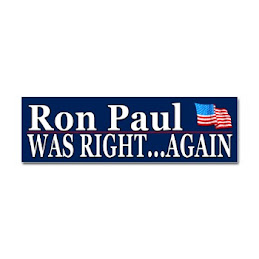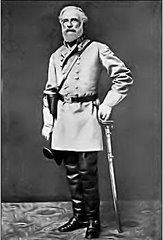After much talk of it, the minimum wage has recently gone up. This "Fair Minimum Wage Act," as they call it, has increased the minimum wage to $5.85 per hour (p/h), and it will continue to rise to $7.25 p/h through 2009. Most people assume this is a fair way to help the lower and middle class by allowing them to make more money for their job. The previous minimum wage of $5.15 p/h, is pretty low in terms of raising a family.
But one great lesson to be learned in economics is this: What sounds good on the surface is not always the best thing. So before assuming that this minimum wage increase is actually helpful to the poor and the economy as it may so appear, let's take a deeper look at this. As always in studying economics, we should begin by understanding the basic principles of what economics is.
As was mentioned in my last blog, economics is a form of trade. One person trades off something they own (money, time, material, etc), in order for something else, that they see is better for them. When a person goes really fast down the interstate, they are taking the chance at having a wreck or getting a speeding ticket for the sake of saving a few minutes of time. By the same token, when a person sells an automobile, they would rather have the money than the automobile.
But let us now turn this to the work field. If someone works thirty hours a week for $200, they have made an economics choice, as has the person who hired them. The worker wants to do something with those thirty hours of the week besides sitting at home and...well...probably writing blogs like me! The worker figures that he might as well make money in those thirty hours. He sees $200 as worth it for him (averaging about $6.67 p/h). The employee highering this person would rather have this worker for thirty hours a week, than the extra $200 a week. Or on a different scale, this worker for one hour than the $6.67 p/h. Both have made an economics choice.
This person working thirty hours for $200 could very possibly be an eighteen year old working a summer job, who has already had a little past experience working. The full time working man trying to support a family will probably be making more money and working more hours. But the fifteen or sixteen year old, the hard working legal (at least hopefully legal!) immigrant, or perhaps the sweet widowed lady, will perhaps have fewer hours, and most likely less pay for the hour. They may not be as experienced or equipped for the job. They may have less hard of jobs. The employee may not be willing to pay a sixteen year old almost $7 p/h, but may be willing to pay the eighteen year old that much. This is not sinful, this is just economics 101. Either end of the deal can walk out on the deal. Anybody can be fired for any reason without the reason even making sense. Anybody can leave the job just because they are lazy. But more times than not, a good worker at a reasonable pay will not be fired, and a worker will not walk out of a job with good pay and good benefits.
So what does a minimum wage do? It hurts the poor more than it helps them! The sixteen year old high school student, perhaps making $5.00 p/h, will be out of a job when the minimum wage increases to $7.00 p/h. The employer will higher someone of more experience and more qualifications to fulfill that $7.00 p/h. It will be much harder for a poor person, a young person, a widow, or a hard-working immigrant to find a job. People complain about how immigrants take away our jobs because they have low wages. If this was the case, then so would poor people, widowes, young high schoolers, etc - but we want the minimum wage to help these poor people, widowes, and young people, and hurt the immigrants. Something has to give! A free market would allow immigrants, young people, and widows, to be hired at low pay, so that the business can higher more people and/or increase their business to higher standards offering more jobs in the long run (i.e. Wal-Mart). A free market does not include a minimum wage. A minimum wage is a government institution in the market world. It is unconstitutional, and there is a reason why. The market sets the wage better than the government. The government has to guess. The market's competion forces the right medium. The argument for a minimum wage is hypocritical, and self-refuting. However many Americans do not see things this way. Americans look only to the seen effects, namely in minimum wage, a person receiving a higher pay. The unseen effects, however, are worse. In the case of a higher minimum wage, it would be these people losing their jobs six weeks later, and less jobs for sixteen year-olds in the future. The right solution would be to abolish the minimum wage. More jobs will be created, and the market will be fair, simple, balanced, and best of all, free.
What do you think?
God Bless America
God bless our Troops
December 14, 2007
Ryan Hampton
Subscribe to:
Post Comments (Atom)










No comments:
Post a Comment